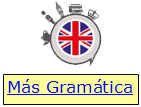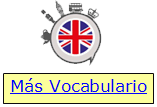|
Drugs and Addiction Drugs and
Addiction
to be addicted to
to have an addiction (to)
an addict
an addictive substance
What is addiction?
“Addiction is a condition that results when a person ingests a substance
(e.g., alcohol, cocaine, nicotine) or engages in an activity (e.g.,
gambling, sex, shopping) that can be pleasurable but the continued use/act
of which becomes compulsive and interferes with ordinary life
responsibilities, such as work, relationships, or health.
Users may not be aware that their behavior is out of control and causing
problems for themselves and others.”
(source: Psychology Today website)
abstinence – A deliberate decision to avoid harmful behaviors, including
sexual activity before marriage, tobacco, alcohol, and other drugs. (verb
– to abstain from doing something)
addictive drug – A substance that causes physiological or psychological
dependence.
psychological dependence – A condition in which a person believes that a
drug is needed in order to feel good or function normally.
physiological dependence – A condition in which the user has a chemical
need for the drug.
stimulant – A drug that increases the action of the central nervous
system, heart, and other organs.
nicotine withdrawal – The process that occurs in the body when nicotine
is no longer used. (Cravings, discomfort.)
intoxication – The state in which the body is poisoned by alcohol or
another substance and the person’s physical and mental control is
significantly reduced.
(tipsy – drunk – sloshed – pissed – stoned – high – plastered – hammered
– wasted – three sheets to the wind – inebriated – out of it –
completely gone – as pissed as a fart)
Opposite: (stone-cold) sober (sobriety – living without alcohol),
straight, tea total
To be on/off the wagon (on the water wagon – to drink water instead of
alcohol)
detoxification – A process in which the body adjusts to functioning
without alcohol.
euphoria – A feeling of intense well-being or elation.
gateway drug – A drug whose use increases the likelihood that a person
will use other harmful drugs. Cigarettes, Marijuana and Alcohol are the
3 of these.
Overdose – taking too much of a drug which cause death
Withdrawal – Unpleasant reactions that occur when a person who is
physically dependent on a drug no longer takes it.
“Cold turkey” – A colloquial expression describing the extreme
discomfort of withdrawal symptoms from drugs.
Hangover/to be hungover – the unpleasant feeling the day after drinking
too much
“Hair of the dog” – A colloquial expression describing the (dubious)
idea that the best way to cure a hangover is to drink a little bit more.
Common drugs:
heroin, cocaine, crack, speed = amphetamines, e’s/E= ecstasy, acid =
LSD, magic mushrooms
a doobie – a joint – a spliff
marijuana – grass – weed – dope – cannabis
uppers/downers
alcohol = “booze = sauce = grog = hooch = a tipple”
tobacco = baccy
Cigarettes = “cigs = ciggies = tabs = fags”
alcoholism – an alcoholic
substance abuse
(to be) in denial
a drug addict – junkie
dealer – a pusher
to shoot up
to chase the dragon
to pop pills
Discussion
Should some drugs be made legal? Which ones?
Should alcohol or tobacco be made illegal?
Do you know anyone who has had addiction problems?
What are some of the characteristics of drunk people?
Is sugar addictive? What about tea, coffee, and chocolate?
What other things can people get addicted to?
Do you know how much alcohol is in beer/wine?/Whisky? – % proof
If heroin were legal, would there be less crime? For example, burglary
and robbery.
Are some people more easily addicted to drugs than others?
Do some people have addictive personalities?
Craig has identified and recognised his addiction. But can he ever truly
stay off dark chocolate?
 *Dispones
de más
PODCAST en inglés publicados en los cuadernos anteriores *Dispones
de más
PODCAST en inglés publicados en los cuadernos anteriores
a los que puedes acceder directamente así como al índice de su
contenido. |
|
|
